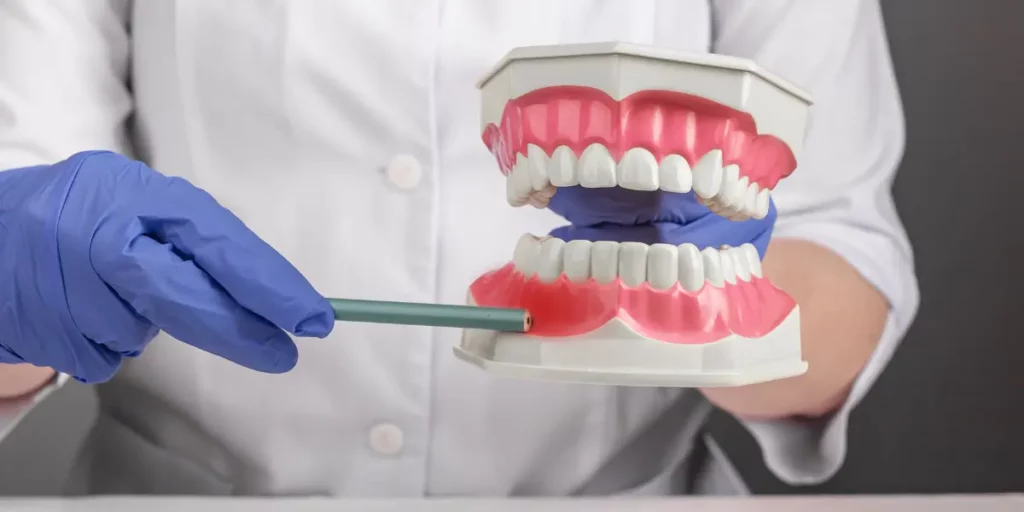The condition of the teeth, gums, and entire oral-facial system—which enables us to chew, speak, and smile—is called oral health. Oral cancer, gum disease, and tooth decay are some of the most prevalent illnesses affecting oral health. More than 40% of adults claim to have experienced mouth pain in the previous years, and more than 80% of people will have at least one cavity by age 34.
Each year, dental-related expenses in the country total more than $124 billion. Dental emergencies necessitating unplanned care cost the nation’s economy, on average, over $45 billion in lost productivity and over 34 million school hours annually. Although interconnected, oral conditions are frequently considered separately from other chronic conditions. Diabetes and heart disease are two chronic diseases linked to poor oral health. Additionally, risky behaviors like smoking and consuming sugary foods and drinks are linked to oral disease.
Improve your Oral hygiene “There is no health without oral health.” Oral health, or the condition of our mouths, is more significant than many of us may realize. It is an important marker of general health, crucial for our well-being and quality of life.
Connecting Link between Oral and General Health
Cleaning your teeth is only one aspect of oral health. Fewer people know that brushing your teeth twice daily can also help you avoid more serious issues. Such as Alzheimer’s disease, pancreatic cancer, cardiovascular diseases, and birth complications. At the same time, most people are aware of common dental problems like cavities, halitosis (bad breath), and gum disease. A window into your body’s other parts can be found in your mouth.
Oral Bacteria and Alzheimer’s Disease
Around 700 bacterial species can be found in the mouth, including those leading to periodontal (gum) disease like gingivitis. According to a recent study by researchers at the National Institute on Aging, the same bacteria that cause gum disease. Same Bacteria also contribute to the onset of Alzheimer’s disease and other related dementias.

Alzheimer’s disease and the bacteria that cause gingivitis were also linked in a 2018 study published in the Journal of Oral Microbiology. A type of bacteria known as Porphyromonas gingivalis can pass from mouth to brain infections via the bloodstream. Once inside the brain, the bacteria release gingipains, enzymes that can kill nerve cells and eventually cause Alzheimer’s and memory loss.
Oral Bacteria and Pancreatic Cancer
Additionally, researchers are intrigued by how oral bacteria may contribute to pancreatic cancer. This bacteria kills 40,000 Americans yearly and frequently goes undetected. According to a 2019 study by scientists at the NYU Langone Cancer Center, having specific bacteria in the mouth may indicate a higher risk of developing pancreatic cancer.

The research team looked for direct connections between the composition of bacteria causing oral disease. And the subsequent development of pancreatic cancer because pancreatic cancer patients are known to be vulnerable to gum disease, cavities, and poor oral health. Pancreatic cancer is more likely to affect some groups of people. The connection between oral health and Black women’s risk of pancreatic cancer was investigated by Boston University researchers in 2019.To reduce the risk of pancreatic cancer, get regular dental visits.
Heart Disease and Periodontitis

A higher risk of developing heart disease is linked to periodontitis. Research over the years has suggested a link between heart disease, blocked arteries, and stroke and the inflammation and infections that oral bacteria can cause. However, the connection still needs to be fully understood. Also, bad dental hygiene raises the possibility of a bloodstream bacterial infection, which can cause blood vessel inflammation and damage that can affect the heart valves.
Streptococcus Bacteria: Culprit of Gum Disease and Blood Clotting

Gum disease and tooth plaque are brought on by streptococcus bacteria, frequently found in the mouth and confined within communities. In a study done in collaboration with researchers from the Royal College of Surgeons in Ireland, researchers from Bristol University demonstrated that once Streptococcus is released into the bloodstream. It can use a protein called PadA on its surface as a weapon to force platelets to clump together and form clots.
Oral Health During Pregnancy
At least 60% of pregnant women, according to the Centers for Disease Control and Prevention, have gingivitis. An early stage of periodontal disease that manifests as red, swollen gums. Tooth loss may occur if gingivitis is not treated. It is thought that the fluctuating hormone levels that occur during pregnancy may make mouth infections worse.

In contrast, periodontitis is a serious infection that has long been linked to unfavourable pregnancy outcomes, such as premature birth and low birth weight. However, it is still unclear how periodontitis might contribute to negative pregnancy outcomes. The bacteria that inflame gums can enter the bloodstream and target the fetus. The harmful effects of endotoxins released by Gram-negative bacteria that cause periodontal disease. Therefore, periodontal disease is a separate risk factor for early labour and low birth weight babies.
Conclusion
Choosing the right dentist is of utmost importance when it comes to maintaining good oral health. Fortunately, finding a top-rated dentist near you has never been easier, thanks to Omni Local Care. Omni Local Care’s comprehensive directory of highly qualified dental professionals. Lets you quickly and conveniently discover the perfect dentist to cater to your needs. Don’t wait any longer to prioritize your dental well-being. Visit Omni Local Care now and use their “dentist near me” search feature to book the trusted dentists appointment in your local area. Today, take the first step towards a brighter and healthier smile with Omni Local Care’s reliable listings! Your oral health deserves the best, and Omni Local Care is here to help you find the ideal dentist near you.




